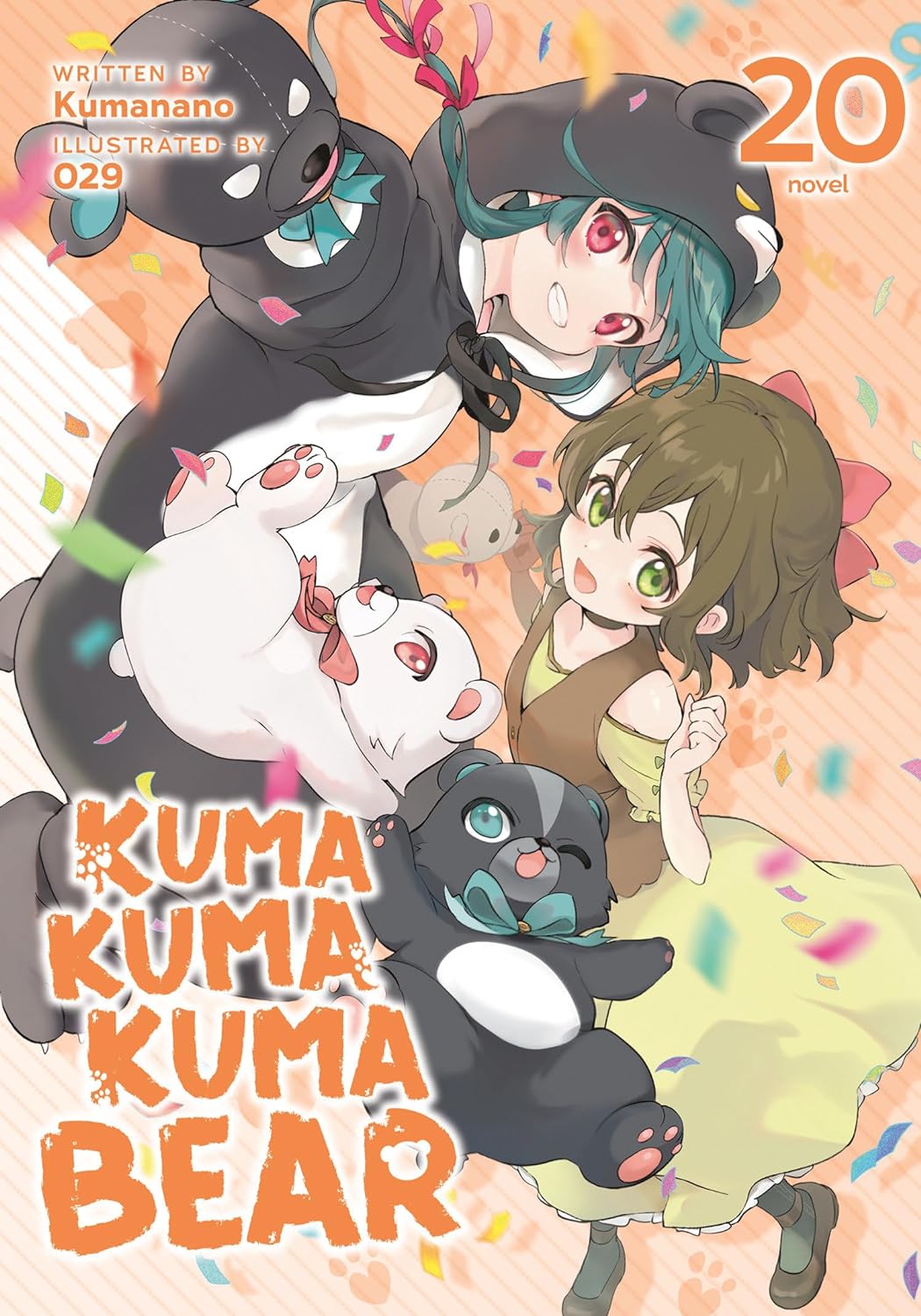By Kumanano and 029. Released in Japan by PASH! Books. Released in North America by Airship. Translated by Jan Cash & Vincent Castaneda. Adapted by Lorin Christie.
I admit that I am sort of ready to give up? Not on Kuma Bear, mind you, it continues to be fine, if somewhat obsessed with its ongoing parade of children adoring Yuna. But look, this site gradually morphed into a thing where I only review light novels on it a few years back, and the one thing that’s been hardest for me to learn is that not all light novels need to have a full review. This especially goes for the slow-life ones that end up going on forever and ever, like this or Smartphone. And as readers have figured out, there are only so many ways I can say “boy, Yuna sure hates people praising her” or “gosh, this series loves to tease yuri fans while pointing out how not gay everyone is”. (Actually, this volume seems to be leaning more towards everyone staying single forever – the series’ almost complete lack of men doesn’t help.) But let’s roll up our sleeves, because I did see one thing this time I can talk about.
After the battle against the orochi in the Land of Wa, we get the traditional post-arc cooldown. Yuna is gifted a mansion to reward her for her efforts in saving the country, and the mansion being filled with hot springs leads to to actually accept the reward for once. She then grabs Fina, Shuri and Luimin and brings them over there for a lakeside barbecue as well as going around the shops, eating Wanese food and dressing up in kimonos – all things Yuna is strangely familiar with given she’s not supposed to be from Wa. On returning home, she decides to write a new volume of the children’s book series, and spends the rest of her time giving out souvenirs and candy. But there’s a competition in a country Yuna hasn’t been to yet, and Shia’s part of it, so Yuna and Noa go to cheer her on.
There were two interesting points this time around. First, Yuna’s love of natto, and the fact that the natives of Wa were baffled that she knew about it, almost caused her to give away her otherworldly origins. Yuna’s backstory, to everyone but Yuna and the reader, is wrapped in mystery, and she wants to keep it that way, partly because I think she doesn’t want to remember it very often. We do see her wish that she could invent Coke and anime so she could go back to being a shut-in, but I think Yuna’s grown past that now. The other interesting thing is the fourth picture book, where Yuna continues to rewrite her own reality to make it more palatable. Not only is she a literal bear in this series, but she also smooths things out and makes them more narratively easy to understand. The author has already been doing this with the novels themselves – it’s been a long time since we’ve seen a whiff of the sexual assault that plagued the earlier books. Yuna is not quite a self-insert, but the line is vague.
I’m not sure what will happen next, but I do know that what we’re getting next is another short story collection. Till then, this continues to be for fans who hope that when they grow up Fina and Yuna will marry. Keep hope alive, I guess.


Speak Your Mind